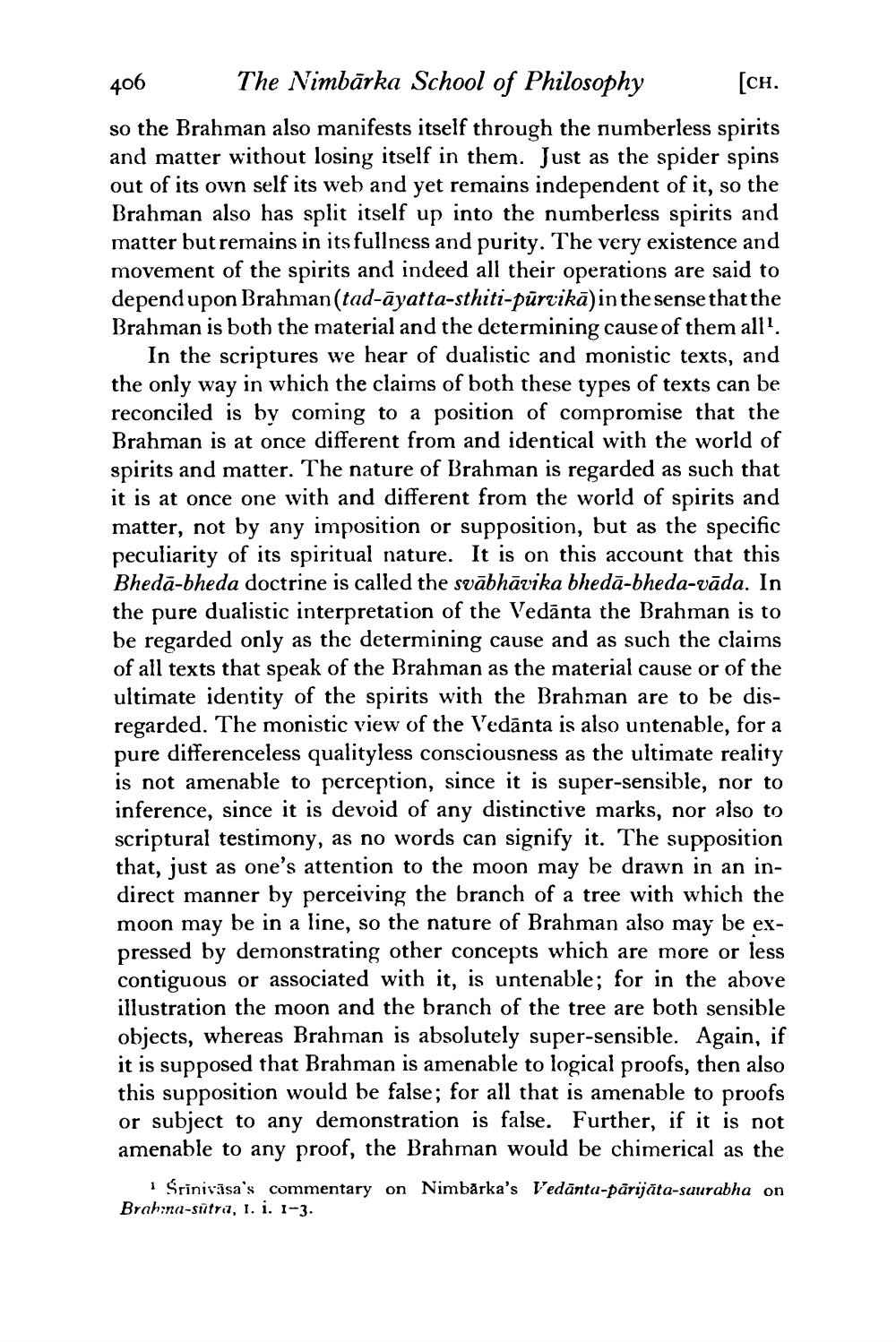________________
406 The Nimbārka School of Philosophy [ch. so the Brahman also manifests itself through the numberless spirits and matter without losing itself in them. Just as the spider spins out of its own self its web and yet remains independent of it, so the Brahman also has split itself up into the numberless spirits and matter but remains in its fullness and purity. The very existence and movement of the spirits and indeed all their operations are said to depend upon Brahman(tad-āyatta-sthiti-pūrvikā)in the sense that the Brahman is both the material and the determining cause of them all?.
In the scriptures we hear of dualistic and monistic texts, and the only way in which the claims of both these types of texts can be reconciled is by coming to a position of compromise that the Brahman is at once different from and identical with the world of spirits and matter. The nature of Brahman is regarded as such that it is at once one with and different from the world of spirits and matter, not by any imposition or supposition, but as the specific peculiarity of its spiritual nature. It is on this account that this Bhedā-bheda doctrine is called the svābhāvika bhedā-bheda-vāda. In the pure dualistic interpretation of the Vedānta the Brahman is to be regarded only as the determining cause and as such the claims of all texts that speak of the Brahman as the material cause or of the ultimate identity of the spirits with the Brahman are to be disregarded. The monistic view of the Vedānta is also untenable, for a pure differenceless qualityless consciousness as the ultimate reality is not amenable to perception, since it is super-sensible, nor to inference, since it is devoid of any distinctive marks, nor also to scriptural testimony, as no words can signify it. The supposition that, just as one's attention to the moon may be drawn in an indirect manner by perceiving the branch of a tree with which the moon may be in a line, so the nature of Brahman also may be expressed by demonstrating other concepts which are more or less contiguous or associated with it, is untenable; for in the above illustration the moon and the branch of the tree are both sensible objects, whereas Brahman is absolutely super-sensible. Again, if it is supposed that Brahman is amenable to logical proofs, then also this supposition would be false; for all that is amenable to proofs or subject to any demonstration is false. Further, if it is not amenable to any proof, the Brahman would be chimerical as the
i Srinivasa's commentary on Nimbărka's Vedānta-pārijāta-saurabha on Brahina-sutra, 1. i. 1-3.




